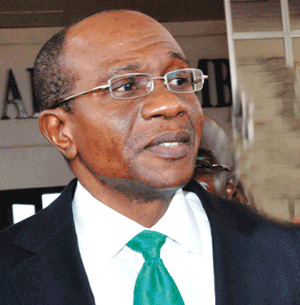For an economy that suffered significant outflow of investments in the last quarter of 2014, European Central Bank’s Asset Purchase Programme (ECB APP) which commences tomorrow has raised hope for improved investment inflows.
Amount of capital brought into the country last year fell sharply by $576.61m due to battered investor confidence. Capital importation report for 2014 fiscal year released by the National Bureau of Statistics (NBS) indicated that investment attracted by the economy dropped from $21.31bn (N4.21tn) in 2013 to $20.75bn (about N4.1tn) in 2014 representing 2.66 per cent decline.
But now financial analysts at WSTC Financial Services Limited said the APP would increase capital inflows to high-yield currencies like the naira and a couple of emerging market currencies investors believe will deliver compelling risk-adjusted returns.
The ECB’s Asset Purchase Programme now includes a monthly purchase of euro-denominated investment-grade public-sector securities in the secondary market.
It would be recalled that the latest move by the ECB is in addition to its asset-backed securities and covered bonds purchase which took effect from October 2014.
According to the ECB, the combined monthly purchase of public and private sector securities will amount to €60bn and will be extended to September 2016 or when a sustained adjustment in the path of inflation is consistent with achieving inflation rates below, but close to, two per cent over the medium term.
The WSTC analysts noted that the Nigerian equities market currently traded at a P/E ratio of 10.5x, lower than most of other emerging markets; Brazil – 13.8x; India – 20.3x; South Africa – 20.5x and Indonesia – 31.9x.
“We believe that attractive valuation in the Nigerian markets compared to its emerging market peers, and increasing stability in the foreign exchange market, presents attractive risk-adjusted return to institutional investors.
“Overall, we reckon that despite current political risk associated with the forthcoming general elections and the threat of a rating downgrade by S&P, the ECB’s asset purchase programme will constitute a net positive for the Nigerian financial markets.”
Evidently, the ECB’s asset purchase programme will ease liquidity in the euro area (through money and credit growth), according to WSTC.
Just as in the case of the recently concluded US Federal Reserve quantitative easing programme, we believe that this scenario will increase the flow of funds out of the single-currency bloc, as cheaper liquidity is expected to increase the risk appetite of institutional investors for high-yield currencies (mostly in emerging markets) that provide attractive risk-adjusted returns.
The analysts, however, said that unlike during the era of the US loose monetary policy, when expectations were quite high about the performance of the Emerging Market Economies, current expectations had been somewhat lowered on the outlook of emerging markets as a result of slowdown in China, geopolitical tensions in Russia and lingering weakness in the Eurozone.
According to WSTC, institutional investors now hold a bullish outlook about the US economy, especially as the US economy continues to firm-up, and as the likelihood of a sooner-than-later hike in US rates remains on the horizon.
“We believe that this will pitch the US market against the EMEs in terms of competition for asset allocation.”
The analysts noted that ECB’s APP was primarily anchored on the need to adequately ward off the heightened risk of deflation and low inflation; particularly given the slide in crude oil prices in recent times and its downside effect on inflation.
They said it was also expected to revive business confidence and investment, thus improving economic activity in the area, adding that recovery in the Eurozone had been sluggish and growth momentum had remained weak.












